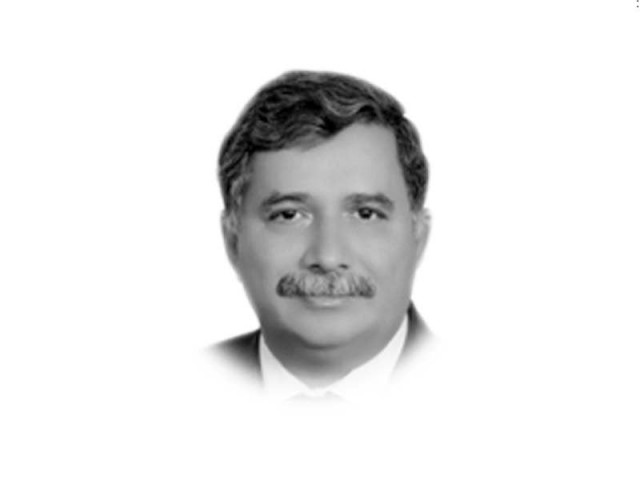Security at the cost of human rights
Governments do have the right and ultimate authority to decide on who deserves to be given asylum or refugee status

The caretaker government’s decision to send the Afghan refugees, having no legal status, back to Afghanistan has triggered a heated debate over the justification of security-centric actions that violate human rights.
The forced repatriation plan is prompted by the perception that a proportion of the Afghan refugees is involved in the recent spike in terrorist activities in Pakistan as well as well the smuggling of dollars across the border.
Those against the repatriation argue that the factors behind militancy and terrorism and the economic meltdown are multidimensional and deep-rooted. They insist that blaming the whole Afghan population living in Pakistan for the mentioned problems is misconceived, and that the focus should be on those associated with terrorist networks.
The governments do have the right and the ultimate authority to decide on who deserves to be given asylum or a refugee status. But these decisions are always based on the principles of International Customary Law and in its historical perspective.
In order to understand the perspective on Afghan refugees, it is imperative to know who a refugee is. A refugee is a person who has fled his or her own country because of human rights violation and persecution, and who is left with no other choice but to seek safety outside his or her country to avoid those dangers. Under such circumstances, a refugee has a right to international protection.
The Afghans had to cross the border into Pakistan due to a pro-Marxist revolution in April 1978 followed by an armed conflict in the name of ‘jihad’ against ‘infidels’. The then President of Pakistan, Gen Zia-ul-Haq had declared that jihad in Afghanistan was also for the security and survival of Pakistan.
Another influx of refugees into Pakistan happened in 2021 after the Taliban retook Kabul and forced the American troops out of Afghanistan. Thousands of Afghans, having no recourse for seeking proper documentation, crossed the border into Pakistan.
A majority of the world community is unanimous that the Taliban-led government in Afghanistan is not in consonance with the Doha Agreement which calls for an inclusive government. They also believe the conditions in Afghanistan under the Taliban are inhuman.
Amnesty International has also voiced concern in this context, stating: “Many Afghans living in fear of persecution by the Taliban have fled to Pakistan, where they have been subjected to waves of arbitrary detentions, arrests, and the threat of deportation. It is deeply concerning that the situation of Afghan refugees in Pakistan is not receiving due international attention.”
Spokesperson for the UN High Commissioner for Human Rights Ravina Shamdasani has expressed similar views: “We are extremely alarmed by Pakistan’s announcement that it plans to deport undocumented foreign nationals remaining in the country after 1 November, a measure that will disproportionately impact more than 1.4 million undocumented Afghans who remain in Pakistan.” She also stated that more than two million undocumented Afghans are living in Pakistan, 600,000 of whom had left Afghanistan after the Taliban takeover in August 2021.
Expressing concern, she stated: “We believe many of those facing deportation will be at grave risk of human rights violations if returned to Afghanistan, including arbitrary arrest and detention, torture, cruel and other inhuman treatment.”
Advocacy group Refugees International is also “especially concerned” about the fate of Afghans who fled their country in 2021 due to the fear of the Taliban.
Among the refugees likely to be at risk are: civil society activists, journalists, human rights defenders, former government officials, security force members, human and women rights activist, artists, singers, musicians and others who do not see eye to eye with Taliban on several issues and policies. Girls who are banned from secondary and tertiary education, working in many sectors and other aspects of daily and public life may face the same fate.
It is not out of place to mention here that the refugee law is essentially a treaty law, but many of the major refugee-receiving countries like Pakistan are not party to either the Refugee Convention or the Refugee Protocol. Therefore, customary international refugee law is quite significant in identifying refugee law practices of refugee protection which aim to safeguard access and admission to refugee protection for which varying degrees of agreement exist in favour of a rule (or emerging rule) of customary law: non-refoulement, temporary refuge and the right to be granted (to receive) asylum. All such practices are deeply rooted in the humanitarian practices.
The principle of non-refoulement forms an essential protection under international human rights, refugee, humanitarian and customary law. It prevents states from forcing individuals to move out of their jurisdiction or carry out effective control when there are substantial grounds to believe that the person would be at risk of irreparable harm upon return, including persecution, torture, ill-treatment or other serious human rights violations. International human rights law explicitly underscores prohibition of refoulement, which is included in the Convention against Torture and Other Cruel, Inhuman or Degrading Treatment or Punishment (CAT) and the International Convention for the Protection of All Persons from Enforced Disappearance (ICPPED).
In view of the international best practices, it is essential to review the policy of forced repatriation of Afghan refugees by devising categories of foreign nationals, majority of whom are Afghans. Among those who could face persecution and may be at risk of their life may be spared.
Published in The Express Tribune, November 1st, 2023.
Like Opinion & Editorial on Facebook, follow @ETOpEd on Twitter to receive all updates on all our daily pieces.















COMMENTS
Comments are moderated and generally will be posted if they are on-topic and not abusive.
For more information, please see our Comments FAQ